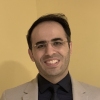Israel’s ongoing strikes on Iran’s nuclear and military infrastructure—including the elimination of top Islamic Revolutionary Guard Corps commanders—is weakening Iran’s military. For Iran’s non-Persian national groups, particularly the Kurds and the Baluch, this could open a window of opportunity to challenge the regime. Yet, despite the shifting landscape, the Kurds are not yet moving.
Historically, Kurds gain politically when strong regimes falter or collapse. In Iraq, it was Saddam’s weakness after U.S.-led forces liberated Kuwait and established a non-fly zone across northern Iraq. Twenty years later, Kurds in Syria gained as Bashar al-Assad lost control of their region at the start of the civil war.
Now, Iran shows signs of fracture. Israel’s campaign appears designed not only to degrade Iran’s military capacity but also to pave the way for regime collapse. But inside Iran, especially in the Kurdish region, the regime can still project force. This is a crucial factor for Kurdish decision-making.
Inside Iran, especially in the Kurdish region, the regime can still project force. This is a crucial factor for Kurdish decision-making.
Over the past week, statements from Kurdish opposition parties based in the Kurdistan Region of Iraq—such as the Democratic Party of Iranian Kurdistan (KDPI), Komala Party, Kurdistan Freedom Party (PAK), and Kurdistan Free Life Party (PJAK) have been cautious. While they blame the war on Iran and its aggressive policies, and call for unity and a Kurdish uprising, none commits to sending forces across the border into the Kurdish territory despite maintaining some operatives in the mountains—and, in some cases, within urban areas. Such restraint reflects wisdom.
In 2022, the murder of a 22-year-old Kurdish woman sparked unrest across Iran. The regime crushed it brutally. Its harshest crackdowns were in the Kurdish and Baluch regions, where the regime killed hundreds. After the media and many Iranian activists rebranded the uprising as the “Woman, Life, Freedom” movement, Kurds and Baluch were alone to bear the heaviest cost.
This is not a new pattern. In its early years, the Islamic regime killed Kurdish civilians after Kurds demanded autonomy in 1980. Even in recent years, when the regime launched drone and missile attacks on Kurdish opposition bases in Iraq’s Kurdistan Region or executed Kurdish prisoners, calls for solidarity in central Persian provinces largely went unanswered. Kurdish strikes and protests rarely trigger nationwide backing.
This makes the current silence from Kurdish armed factions understandable. For the Kurds, acting prematurely could be suicidal. Despite Israel’s disruption of Iran’s command-and-control, the regime’s capacity to retaliate in Kurdish regions remains considerable. Launching an armed campaign now would risk inviting force without guaranteed support from either international actors or the broader Iranian opposition.
Still, the bigger strategic picture cannot be ignored. Israel’s campaign, even if not explicitly designed to topple the regime, could produce a domino effect. Iran’s military command structure’s capacity to deter adversaries and control internal unrest is now unclear.
[Kurds] are not fighting to replace one dominant power with another; they are seeking self-governance, dignity, and recognition.
Should the Islamic Republic collapse, the Kurdish position is clear. Kurds have long advocated for a democratic, decentralized, and pluralistic federal structure in Iran. If the new regime—whatever form it takes—continues the centralist, Persian-dominated model of governance, the Kurds will reject it as in 1980. They are not fighting to replace one dominant power with another; they are seeking self-governance, dignity, and recognition. Autonomy, if not full self-determination, is non-negotiable.
The Kurds occupy a uniquely strategic position shaped by geography, history, and political resilience. They exhibit ethnic cohesion and a rooted national identity. Their region shares in Iran’s rich natural resources. With a secular political vision and defined objectives, the Kurds act as a stabilizing actor in a volatile region, and their presence serves as a barrier against the spread of extremist ideologies.
For now, Kurds’ caution is less passivity than calculation. The Iranian regime may be wounded, but it is not near collapse yet. For the Kurds, timing is everything.








